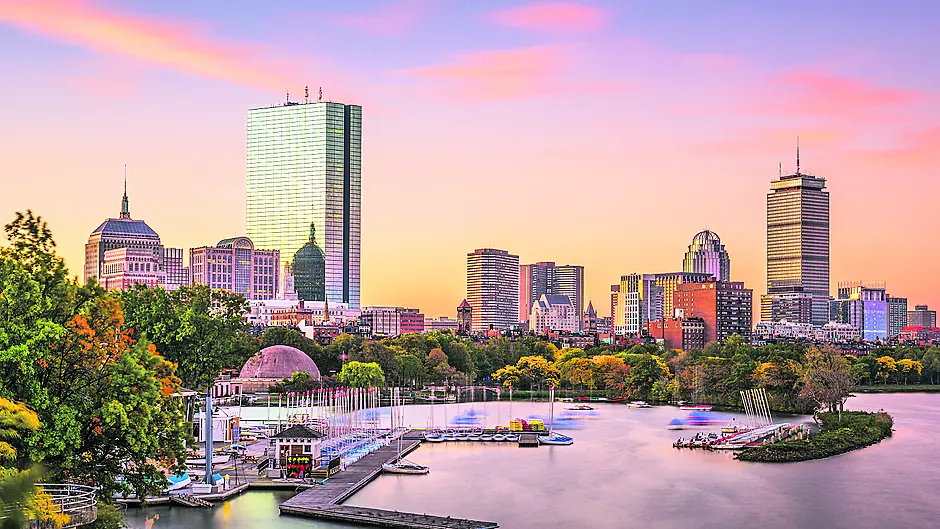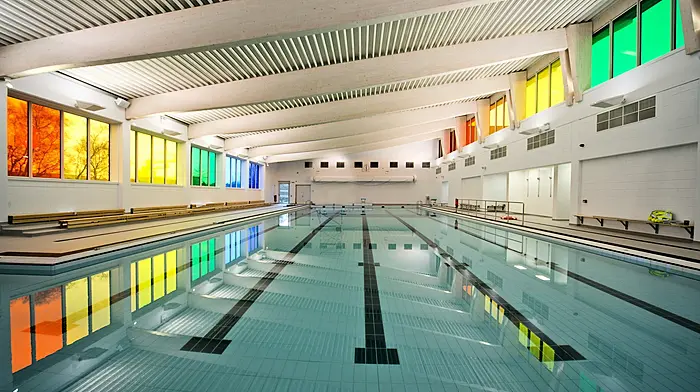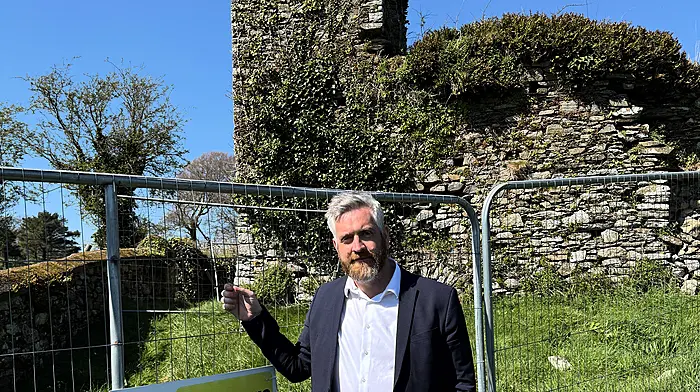Having recently returned from a very expensive trip to the US, editor Siobhán Cronin says perhaps we shouldn’t be so quick to slam Ireland as a holiday destination
THERE is a lot of commentary this summer about high prices for staycationers and how Ireland represents poor value for those of us opting to stay put this year, or indeed for our visitors from abroad.
And while there is no doubt that the perfect storm of the pandemic, the war in Ukraine and inflation have all had a massive impact on prices – not just in Ireland, mind you – there is one thing we should be thankful for, and that is complete transparency in our prices.
We have no added-later taxes, we have no hidden fees in hotels (yet) and we have the option to tip if we feel service is good.
In short, the price on the bill, or even on the menu, is the price you pay. And there is a lot to be said for that.
We have just returned from a family holiday in the US. And while that sentence might in itself sound a bit extravagant in the current climate, bear in mind we could only afford one week and it was a long-held ambition of ours to bring our two nieces to the US for a few days to experience the thrill of New York City and all things American.
For a generation that has grown up with so much Americanisms in their lives, so few have visited Uncle Sam. We had wanted to do this for some years, but the reign of a certain US president followed by an equally nasty virus put paid to our plans – until now.
And so with two extra years of saving behind us, we set off, thinking we might even do a bit of splashing out by adding in a bit of shopping and some extra sight-seeing.
Luckily, the fears of lengthy airport queues and flight delays didn’t come to pass. Flying from the incredibly efficient Cork Airport to Heathrow was a wise choice and our first stop was Boston.
The first hint that hotels are increasingly nervous about fraud came when they told us they would be taking several hundred dollars from our account to cover any possible room charges we might incur – despite having paid for accommodation upfront – and would re-lodge it once we had checked out.
Presumably plenty of people charge their credit cards while staying in hotels now and then cancel them before the hotel has a chance to recoup the money.
No problem, we said, once we get it back, no worries.
It had been at least 15 years since I had visited the US myself and I was aware of the strong tipping culture – as in, you have to tip. Staff see it as a part of their wages now, so refusing to boost them is seen as a very personal affront to them and their work.
But, just like Ireland these days, good staff are hard to recruit and so in many restaurants and cafés there were very young and obviously untrained staff, struggling with the onslaught of summer tourists.
But not only are you expected to tip handsomely despite what level of service you get, thanks to the pandemic, the largely cashless society in the US means you are presented with the handheld ATM machine and the query ‘Do you wish to tip 18% 20% or 22%?’ everywhere you go.
Of course, us Irish don’t want to be seen as skinflints so we opt for the 20% at a minimum. But adding 20% to every bill soon became a bit of a shock to our holiday budget. Add to that the State taxes which are not on the menu, and you can be reaching for the palpitation tablets a few times a day.
Tourist venues are not cheap, either. You can pay anything from €25 to over €50 (or dollar equivalent, which is pretty similar these days!) for a visit to a museum or interpretative centre. Multiply by four and nothing can be considered inexpensive. Of course, all those trips will have tax added on top, and if you stop for coffee or a bun, you can expect to be asked to tip.
But the icing on the cake for us was when we checked out of our hotel in Boston. An extra €259 was added to our bill and when I queried it, and they reluctantly gave me the printed-out bill details, I was told this was a ‘destination fee’ of €2.69 plus tax, per room, per night.
And this is not refundable. This is a fee that some hotels are now adding on for the luxury of having access (whether you use it or not) to wi-fi, a gym, and – hilariously for a family holiday – the business suite, including conferencing facilities.
When I googled it, I realised this was a pretty common ‘hidden charge’ that a lot of US travel writers have been complaining about for some time. But it seems it has gathered momentum since the pandemic, as hotels are no doubt trying to recoup lost revenues.
It is a bit ‘rich’ as us Irish would say, to charge for the likes of wifi when the website flags that it is part of the package available to guests on booking.
No doubt if I had read the tiny small print I would have discovered a mention of this, but the real fear is that what happens in the US usually finds its way across the Atlantic eventually.
I certainly hope this is not the case and that Irish hotels shy away from these extra charges for items you think you have already paid for within the hefty booking fees.
AIB has recently had to back-track, rather embarrassingly for them, from their plans to push us all towards a cashless society. At Newark airport, as we were leaving New York a few days later, we got some sight of how this might work – or not.
At the departure gates, all the restaurants were not only cashless, but devoid of humans too. You queue up at iPad-type device, select your food, pay by tapping and await its delivery.
The amount of chaos that was ensuing on the day we were there would have been comical were it not so depressing.
A pilot beside me was shouting into the abyss behind the counter, asking if anyone had any idea if his food was going to arrive anytime soon. When mine did arrive, about 25 minutes after my order was placed online, it was inedible. And of course, there was no human to complain to, so it was promptly binned.
If this is the future, I’m booking my flight back to 1980, thanks very much.









